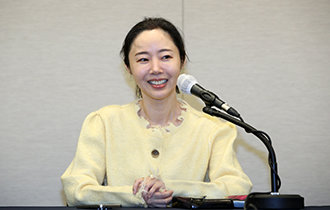Most employed and unemployed are in their 60s
Most employed and unemployed are in their 60s
Posted May. 18, 2024 07:47,
Updated May. 18, 2024 07:47
Last month, South Korea's employment rate reached its highest April level in over 40 years. This increase is mainly due to individuals aged 60 and older who, facing insufficient income after retirement, are actively rejoining the workforce to earn extra money. Consequently, the number of employed seniors saw the largest rise among all age groups. At the same time, the number of older unemployed individuals also grew, highlighting a sad reality in the aging job market.
According to the April employment trends from Statistics Korea, last month's employment rate in South Korea was 63%, up 0.7 percentage points from last year. This means that more than six out of 10 people aged 15 and older are working. It is the highest April figure since these statistics were first recorded in July 1982. The number of employed people also increased by over 260,000 compared to a year ago.
In particular, the number of employed people aged 60 and older rose by 292,000 from the previous year. Baby boomers born between 1955 and 1963, who have recently joined the elderly population, are remaining in or returning to the workforce even after retirement. As more older adults seek employment but struggle to find jobs, the number of unemployed people in their 60s and older reached 39,000, the highest among all age groups. Meanwhile, the number of employed young people aged 15 to 29 decreased by 89,000 compared to last year, marking a decline for 18 consecutive months. This decline is due to a shrinking youth population and delays in finding suitable jobs. Additionally, the number of employed people in their 40s decreased by 90,000.
This trend is expected to accelerate. By the end of this year, South Korea will become a super-aged society, with people aged 65 and older making up more than 20% of the total population. As life expectancy increases and health conditions improve, elderly individuals are expected to want to work longer. However, due to the rigid seniority-based wage system, companies are hesitant to continue employing workers after the legal retirement age of 60.
Rather than pushing for an extension of the legal retirement age, South Korea's labor sector needs to find ways to increase wage system flexibility, creating a 'win-win' situation for both companies and older workers. The government and businesses should also focus on creating good jobs for young people.







